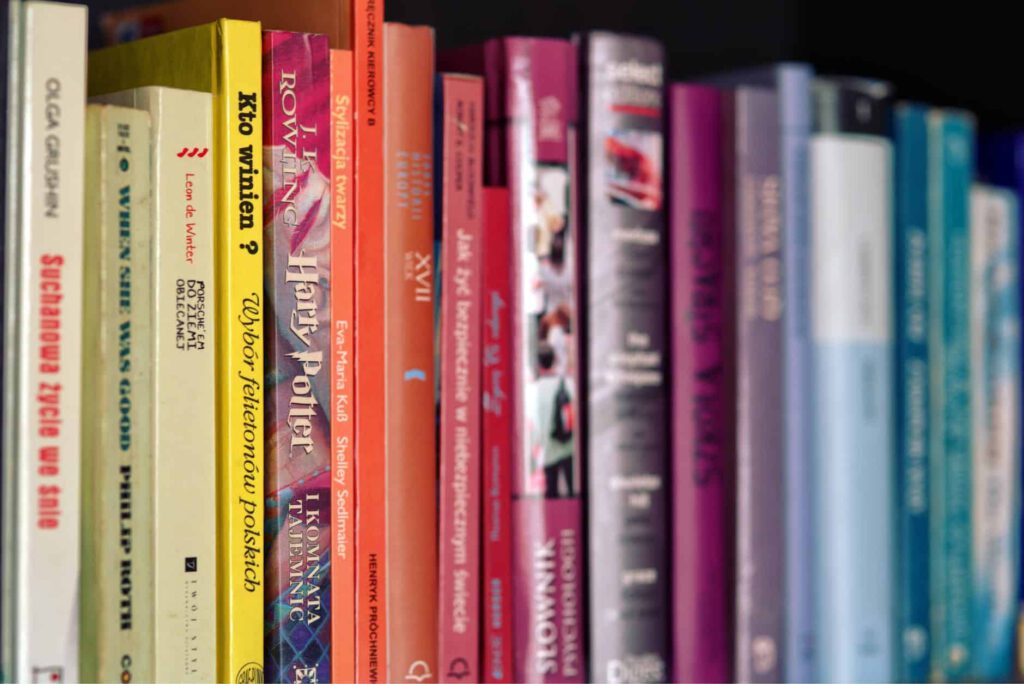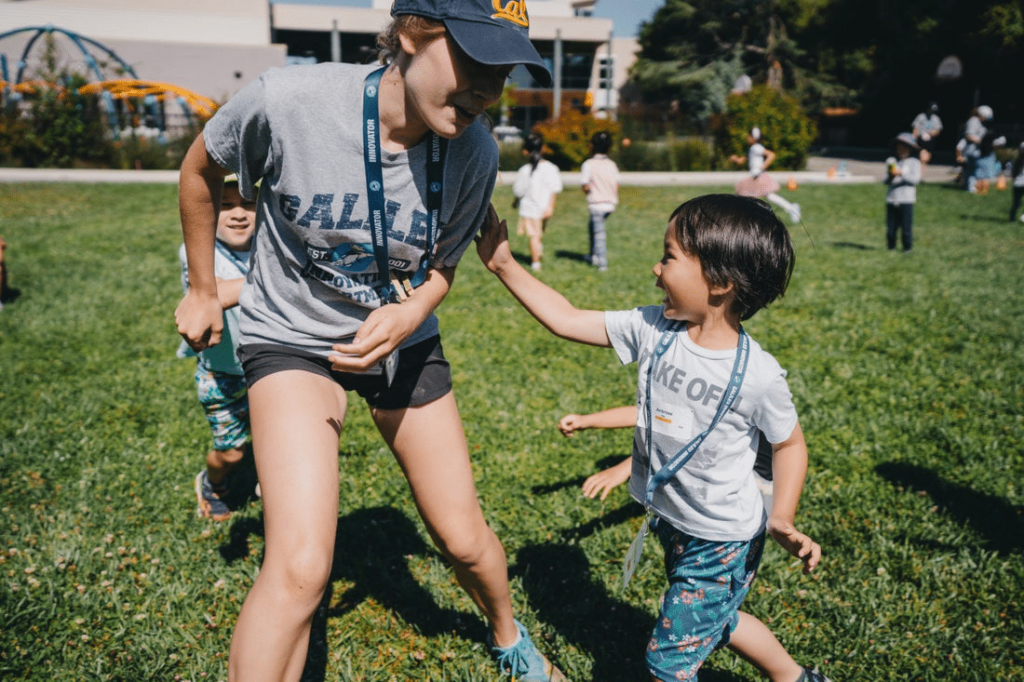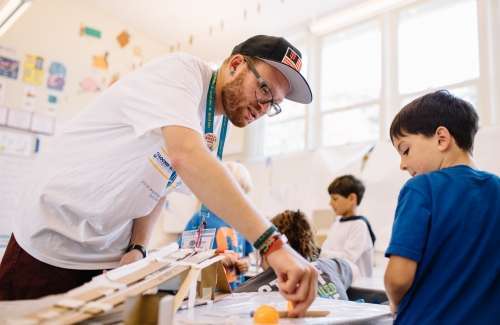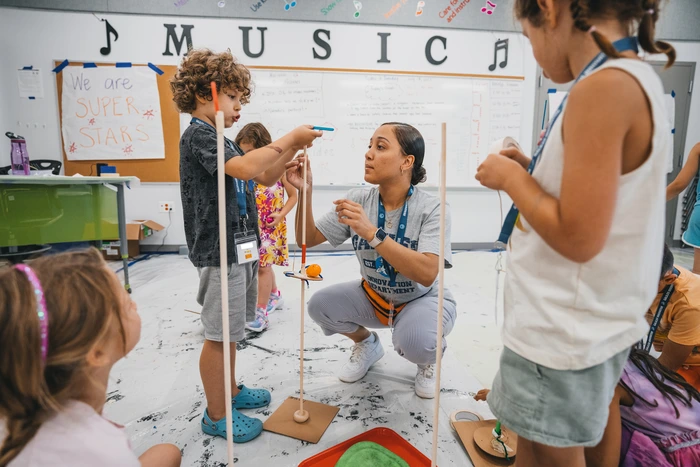“It was the best of times, it was the worst of times.”
“Call me Ishmael.”
“Grrr. . . How to start this blog post? Nothing is working. Where’s my ice cream spoon?!”
Sound and feel familiar? We all experience moments, probably daily, that call us to be reflective—to take a step back and contemplate what is and isn’t working in a given situation. This is a critical life skill. We want our children to be able to notice and think about the impact of their work and actions so they can seize opportunities, course correct and effectively solve problems. But how do we teach kids to be reflective?
At Galileo Camps, being reflective is one of five mindset elements at the core of the Galileo Innovation Approach—the backbone of our programs. We use the following three I-statements to help children understand and activate their reflective powers
BE REFLECTIVE
- I take time to think about what is and isn’t working in my design.
- I think about how my work impacts other people and the world.
- I seek feedback to improve myself and my work.
At home, one way to focus on the meaning and importance of being reflective is by sharing stories that highlight these sensibilities, your own or those from books, and then discussing how similar themes come up in your child’s world. Below are some of our favorite “Be Reflective” books:
The Most Magnificent Thing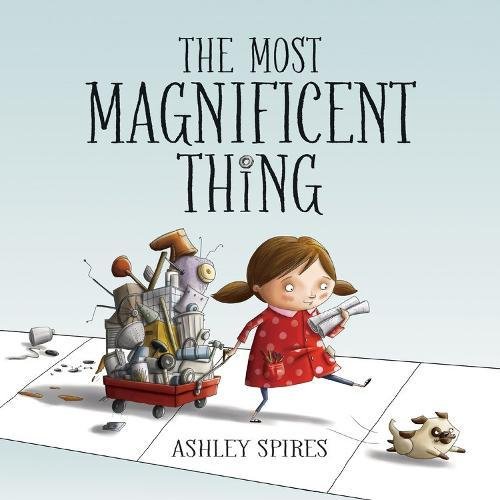 , by Ashley Spires
, by Ashley Spires
If at first you don’t succeed, go buy yourself a cookie. That’s not the book’s main message, but it’s actually not far off. Struck by inspiration, a little girl and her trusty canine assistant set off to realize a most magnificent vision. Prepared and poised for greatness, iteration after iteration falls short, leading to impatience and destructive emotion. However, a calming walk—complete with aforementioned cookie—helps to bring new perspective as the girl takes time to reflect on her work. Suddenly she sees that amidst all of the failures, some parts of her designs were actually working quite well. New insights arise, confidence returns and success, though different from her original vision, ensues.
The Three Billy Goats Fluff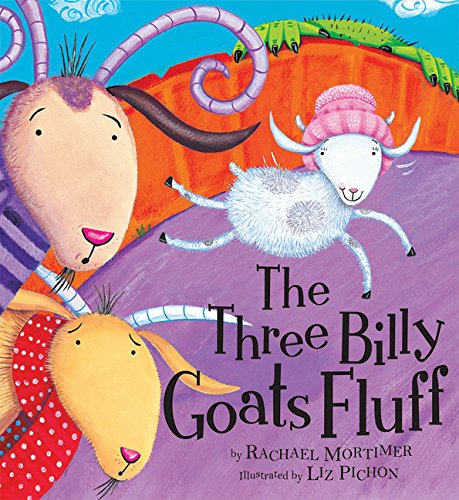 , by Rachel Mortimer
, by Rachel Mortimer
If this book doesn’t satisfy your secret desire to be part of a world in which trolls and goats readily solve their problems due to an uncommon capacity to self-reflect… Well, then read it again. On the surface, this retelling of a classic tale may look and feel like it’s written for toddlers, but there’s actually quite a bit of depth to it. The sleep-deprived troll suffers from a bit of buyer’s remorse, chagrined to discover that curb appeal is no substitute for quiet neighbors. Luckily for him, what the Billy Goat family may initially lack in self-awareness, they more than make up for in empathy. An enjoyable example of what’s possible when we all reflect upon how our actions impact others, this book will provide families plenty of opportunities to consider how they could be more reflective, too.
Please Please the Bees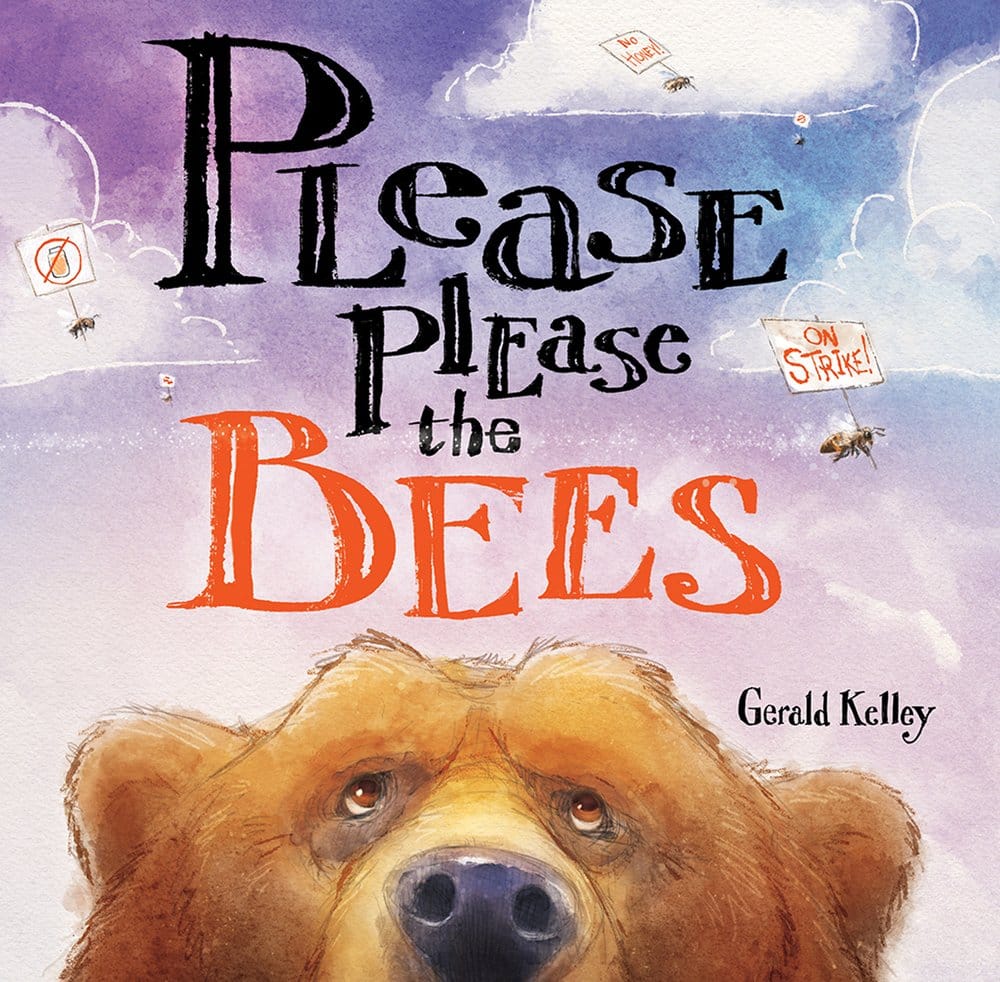 , by Gerald Kelley
, by Gerald Kelley
Sometimes we have to hit rock bottom before we can make a change. Benedict the Bear learns this hard lesson when the 99% rise up to disrupt his honey supply chain. The outraged bees, feeling overworked and under-appreciated, make plain that Benedict needs to change his ways if he ever wants to see another jar of his favorite foodstuff. Even when we’re forced into a reflective mindset, the potential to be better is still present. Benedict takes the bees’ disgruntled buzzing to heart, and shows readers the sweet side of putting in the effort to be reflective.
Ben Franklin’s Big Splash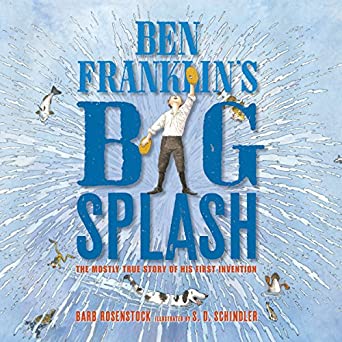 , by Barb Rosenstock
, by Barb Rosenstock
Here’s the thing about this mostly-true book: you’ll be tempted to think you, or your kids, will be the next Ben Franklin. And maybe after reading about Ben’s childhood, you will be. One of the gifts of reflection is that it can offer an unobstructed view into solutions so simple that you slap your forehead wondering, “Why didn’t I think of this before?” Recounting the set of experiences that led young Ben to invent swim fins, the book illustrates the power of posing a question, observing related phenomena, reflecting upon the data and then taking action. So, what are you waiting for? What will be your first invention?
Willow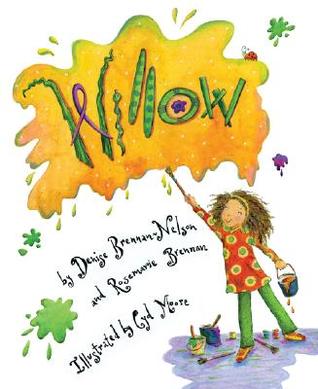 , by Denise Brennan-Nelson and Rosemary Brennan
, by Denise Brennan-Nelson and Rosemary Brennan
While reading this book, ask yourself: when are you Miss Hawthorn and when are you Willow? Keeping that prompt in mind will help readers to reflect on when and why we sometimes act one way, while at other times we act in completely opposite manners. Miss Hawthorn, a metaphor for tradition and the status quo, collides with Willow, a creative spirit who is unaffected by others’ view of the way things should be. Even though the Hollywood ending is visible from only a few pages in, “Willow” is worth at least a reflection or two.
—
Written by Pamela Briskman, Galileo’s Vice President of Education. Pamela has worked in education for more than 25 years and leads the extraordinary team of educators, makers and engineers who create Galileo’s rich design projects and curriculum.
